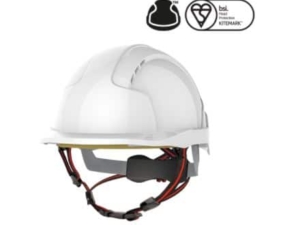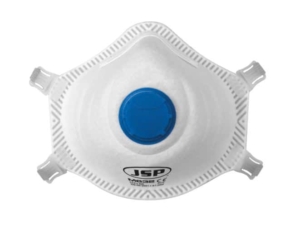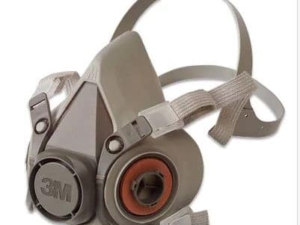Benefits of Wearing PPE at Work
It might come as a surprise, but not all Personal Protective Equipment (PPE) is a legal requirement; a lot of it is optional, based on the needs of the company and the industry. However, there are some key benefits for employees and companies to support wearing PPE. Workers who feel safe work better, and there is less chance of a personal injury claim.
Businesses looking to safeguard workers, retain the top talent in evolving industries, and build their brand reputations with workers and clients, should invest in PPE. Creating solid foundations for a business is more crucial today than ever before due to the rise of automation and focus on well-being in the workplace. Making PPE a core element of the business is key for any business looking to succeed in the long-term.
Key Points
PPE Requirements
Personal protective equipment (PPE) is required in workplaces throughout the UK to protect workers and maintain health and safety. PPE includes clothing and equipment needed to protect workers from specific hazards relating to their environment. It also includes the workplace.
According to PPER (1992 Personal Protective Equipment at Work Regulations), the original regulations, PPE is anything worn or held that protects a person from risks and hazards in the workplace. There is a list of factors to determine whether or not PPE is required in a workplace.
PPE is very important, and in some cases, it is legally binding as well, but not always. PPE is a legal requirement for "limb workers"; these are workers who are under contract with regular and guaranteed hours. Companies are not legally required to provide casual workers with any PPE.
Despite the official line of casual workers and PPE, there are several strong reasons for a company to provide PPE to all workers. Firstly, PPE keeps the workers safe and prevents any litigation issues. Secondly, injuries to workers can lead to a damaged reputation for a company.
The Key Benefits of Wearing PPE at Work
PPE is not mandatory for casual workers, but it's recommended. If you enter a workplace on a casual basis and notice some workers have the protective equipment that you don't, there are a few good reasons to follow this up. PPE protects you from physical harm in the workplace and protects your livelihood from time off due to injuries. All workers should be supplied with PPE.
Reducing Sickness Absence
Whether you are a company employing workers or a worker looking to understand more about PPE requirements, you can benefit from weathering protective equipment and clothing in the workplace. Wearing PPE protects workers from injuries and income losses due to time away.
Injured workers must spend time in recovery, putting their income and positions in jeopardy - there's a chance they will be replaced. Companies using PPE can also enjoy better worker retention; not only are they more available, but they are likely to stay with an ethical company.
According to The Health and Safety at Work Act 1974, workplaces need to provide adequate training for their staff and workers to ensure they can operate safely and avoid sustaining any injuries - this includes providing PPE. Employee welfare is also an important workplace factor.
When the main point of the Health and Safety Act is followed, it means that workers can enjoy a safe working environment along with the right equipment for their duties. This adds up to a happier workplace with fewer absences supporting productivity and the company's reputation.
Preventing Workplace Injury
PPE is specially designed to protect workers from industrial hazards that they encounter on a daily basis. PPE can include hard hats, aprons, gloves, goggles, and other wearables, depending on the workplace. Hazards can include bacteria, extreme temperatures, and more.
People working in kitchens, scientists, and medical practitioners can encounter harmful bacteria. People working on construction sites and factories can sustain injuries and encounter extreme heat and cold, and those working with electricity or fire need adequate protection from hazards.
Although PPE is optional to a degree - only permanent employees are legally required to have PPE - there is a strong argument for all workers to wear industry-grade PPE. According to the Labour Force Survey, 565,000 workers in the UK sustained a work-related injury in 2021/2022.
Although these injuries were non-fatal, they also led to workplace inefficiencies and litigation claims for companies. For employees, it means time spent away from their work, potentially not earning and leaving an opening for someone else to fill the role. PPE can reduce these issues.
PPE includes things a worker can wear or hold that will prevent injuries in the workplace. It is important that construction workers, roadside workers, and maintenance workers are clearly visible to other workers and traffic, so they require luminous boiler suits and hats with lights on.
Similarly, someone working with sparks that could damage their sight must wear goggles when operating machinery, and anyone working at a height needs the proper harnesses and footwear to prevent falls, injuries, and in the worst cases, fatalities. PPE offers effective injury prevention.
Reducing Staff Turnover
Companies know that retaining the best industry talent is good for business and success, especially these days when there is so much automation in the workplace. Supplying workers with the correct PPE for the role is one way to create a good impression and retain employees.
Employee retention helps businesses grow because they have the experience and knowledge needed to make key decisions and relate to clients. But there is another benefit, employees who have been through the training process are cost-effective as new staff don't need onboarding.
Increasing Workforce Productivity
PPE also boosts productivity in the workplace. Instead of businesses making losses due to absenteeism, they have a workforce in place that is protected and motivated on a daily basis. Wearing the correct gear puts workers in the right frame of mind and helps them work better.
Wearing the right working gear sets the context for a job role helping productivity, but it also supports productivity in a more practical way. For example, the kitchen staff will be able to work more efficiently when they have the right gloves to wear and can handle larger quantities safely.
Improving Brand Reputation
Most businesses are primarily interested in PPE for the health and safety of workers and to adhere to the UK regulations, but there's a secondary benefit, a boost to the business reputation. Companies that provide their staff with PPE can benefit from a more streamlined recruitment process, enabling them to attract talented staff easier.
With the advent of automation and AI, companies are paying special attention to recruitment processes; this ensures they hire and retain the best industry talent. Given a choice, candidates will opt for companies that supply PPE in accordance with guidelines and industry standards.
Employees, present and past, favour employers who look after their workers and support welfare, and this extends to customers as well. A business that uses PPE starts to gain a favourable reputation with customers and clients thanks to free word-of-mouth advertising.
In order to align with industry standards, companies must use the right protective equipment for the role. Some examples of PPE requirements can be found here. As with any internal process, a company needs to provide a high standard of service to employees to improve its reputation.
Avoiding Prosecutions and Fines
Workplace compensation needs to concern any modern business. When a worker sustains an injury in the workplace, it can lead to litigation issues and seriously damage the company's reputation for years to come. Ineffective PPE can be a vulnerability for workplace injury lawyers.
It is seriously harmful when a charge is brought against a company or brand. Even if the claim is thrown out, the publicity and reputational damage sustained by the company can be devastating. When all is considered, it is better to invest in the right PPE and protect employees.
Depending on the workplace, some PPE is mandatory. In the construction industry, you will not find a worker without a hard hat, gloves, and a luminous vest. Similarly, in the catering industry, all workers are required to wear hats and gloves to avoid contamination. It is thanks to OSHA.
OSHA stands for the Occupational Safety and Health Administration, an organisation that was set up to maintain standard industrial safety practices. Not only does OSHA provide guidance and guidelines for worker safety, but it also enforces standards with its training and outreach.
Conclusion
As you can see, there are plenty of excellent reasons to review your PPE and make changes that align with modern business practices. PPE will reduce absenteeism and support productivity, prevent workplace injuries and legal claims, reduce staff turnover, increase workplace productivity, improve the brand's reputation, and prevent precautions and fines.
It is important to ensure you have the right PPE for your workplace. Even if you have some in place already, it is sensible to review this now and again to ensure you are up-to-date with the latest protocol. The best way to create solid health and safety foundations is to audit the workplace taking note of any obvious hazards. Also, understand the industry requirements.
Why Wait? Check Out Our Full Range of PPE Head Protection Today By…
…clicking here, or by contacting a member of our highly-experienced team today on +44(0)121 544 5208 or by sending an email to sales@provincialsafety.co.uk. The entire Provincial Safety team look forward to hearing from you.






